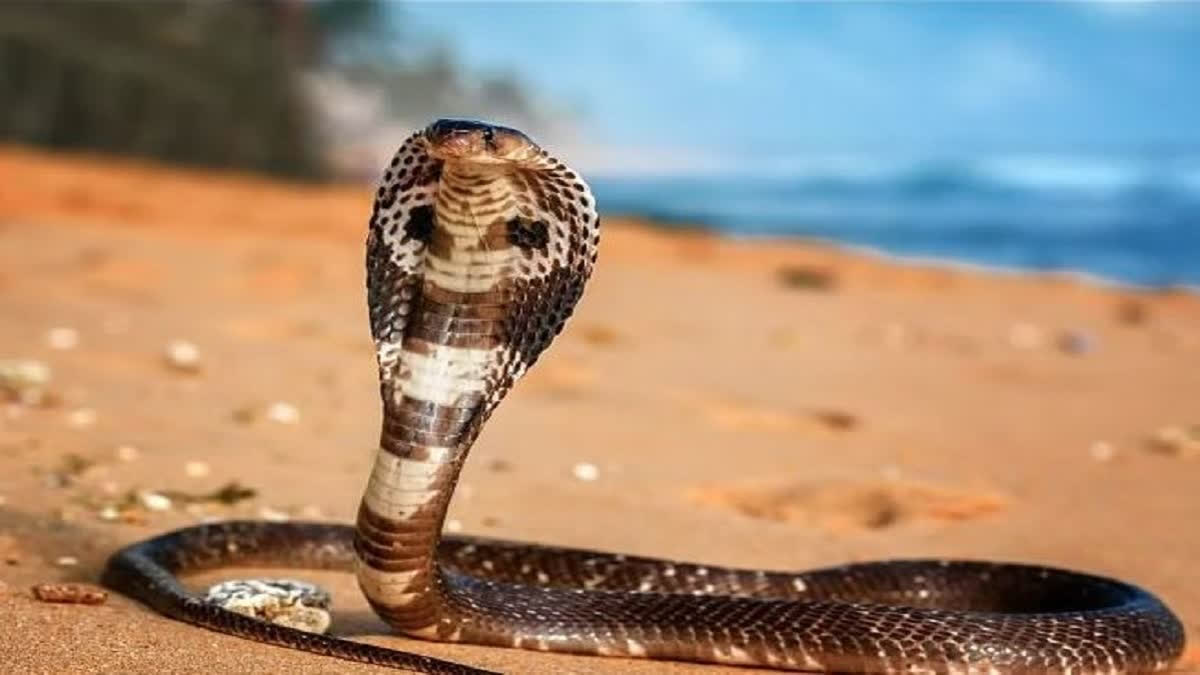New Delhi: The Union Ministry of Health and Family Welfare (MoHFW) has asked States and Union Territories to make snakebite cases and deaths a 'Notifiable Disease' under the relevant provisions of the State Public Health Act or other applicable legislation.
Once snakebite cases and deaths are declared as a 'Notifiable Disease', it will be made mandatory for all government and private health facilities, including medical colleges, to report all suspected, probable snakebite cases and deaths.
Union health secretary Punya Salila Srivastava in a letter addressed to the principal secretary and additional secretary (Health) of all States and UTs said, “As you are aware, snakebites are an issue of public health concern and in certain cases, they cause mortality, morbidity and disability. Farmers and tribal population are at higher risk.”
A copy of the letter in possession of ETV Bharat said that to address the issue of snakebites, the Ministry of Health & Family Welfare, Government of India, has launched the 'National Action Plan for Prevention & Control of Snakebite Envenoming from India by 2030' (NAPSE) in consultation with relevant ministries and stakeholders.
“The objective of the action plan is to halve the snakebite-related deaths by 2030. The plan has defined strategic components, roles and responsibilities of various stakeholders involved in snakebite management, control and prevention,” Srivastava said.
One of the key objectives of NAPSE is to strengthen the surveillance of snakebite cases and deaths in India. “A robust surveillance system is essential for accurately tracking snakebite incidents and deaths, which will provide valuable data to inform and evaluate the effectiveness of interventions,” Srivastava said.
According to Srivastava, a mandatory notification of all snakebite cases and deaths is required to strengthen snakebite surveillance.
“It will help the stakeholders gauge accurate burden, high-risk areas, factors responsible for deaths of snakebite victims, resulting in improved clinical management of snakebite victims. Furthermore, notification of snakebite cases and deaths will also improve reporting from private health facilities,” Srivastava said.
Srivastava has also asked States and UTs to reach Dr Ajit Shewale, Joint Director & Nodal Officer of snakebite prevention control at the National Centre for Disease Control (NICDC), Delhi for further support in this regard.
According to a report from the Health Ministry, in India people living in densely populated low-altitude and agricultural areas of Bihar, Jharkhand, Madhya Pradesh, Odisha, Uttar Pradesh, Andhra Pradesh, Telangana, Rajasthan and Gujarat account for 70 per cent of deaths, particularly during the rainy season when encounters between snakes and humans are more frequent at home and outdoors areas.
As per a systematic literature studies conducted by researchers showed that around 58,000 deaths occur of an estimated 3-4 million snake bites annually in India, which accounts for half of all snake bite deaths globally.
According to the Central Bureau of Health Investigation (CBHI) reports (2016-2020), the average annual frequency of snakebite cases in India is around 3 lakhs and about 2000 deaths occur due to snakebite envenoming.
Read more: Tragic Snakebite Death Highlights Lack Of Road Access At Tamil Nadu's Alakattu Village



